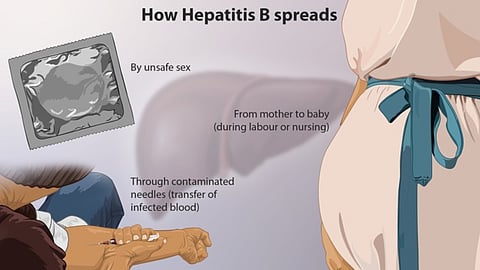The World Health Organization declared on January 17 that the Maldives and Sri Lanka have achieved control over hepatitis B. This announcement came after an expert panel ascertained that the two countries have consistently high coverage of hepatitis B vaccine doses in infants and a low prevalence of the deadly disease. This is verified through serological surveys that have been performed recently in both countries.
Dr. Poonam Khetrapal Singh, Regional Director of WHO South East Asia, said, “I congratulate and applaud the Maldives and Sri Lanka on their achievement, which once again ascertains the sincere efforts being earned by the health leaders and officials, health workers, and the people of these countries towards the health and well-being of communities.”
The childhood immunization data from the Maldives and Sri Lanka was studied by the Expert Panel for Verification of Hepatitis B Control in the WHO South-East Asia Region. The data showed that in the past many years, there has been consistent coverage of over 90 percent of hepatitis B vaccine doses provided during infancy. The findings of national surveys that were conducted among children in 2022–2023 in these countries were also reviewed by the Expert Panel.
Dr. Supamit Chunsuttiwat, chairperson of the Regional Expert Panel for Verification of Hepatitis B Control in South-East Asia, said that, based on the evidence presented to it, the Expert Panel inferred that the standards required for verification of hepatitis B control have been met in both of these countries and hence suggested that this important public health target has been achieved in the Maldives and Sri Lanka.
WHO stated in its release that now these two countries have joined Bangladesh, Bhutan, Nepal, and Thailand, which achieved the same feat in 2019.
Preventing hepatitis B infection in infancy substantially lessens chronic infections and cases of liver cancer and cirrhosis in adulthood.
The Southeast Asia Region of WHO comprises 11 countries, and it is home to a quarter of the world's population. Hepatitis control continues to be an important initiative in this region. It has an estimated 60 million people living with chronic hepatitis B and 2,18,000 dying every year of hepatitis B and C. Of the people eligible for antiviral treatment, only about 10% know their status and less than 5% of them are on treatment.
In 2016, the South East Asia Regional Immunization Technical Advisory Group approved a regional goal of hepatitis B control with a target of decreasing hepatitis B prevalence to less than 1% among children aged at least 5 years.
The Hepatitis B vaccine, as a part of the pentavalent vaccine, has been included in the national childhood immunization schedule of all countries in the region, with three doses of this vaccine given to children during their first year of life. Eight countries of the region also have a policy of providing birth doses of the hepatitis B vaccine to newborn babies.
According to the WHO, until 2019, the immunization coverage in this region was in exemplary improvement. However, due to the COVID-19 pandemic, coverage declined in 2020 and 2021 in this region.


